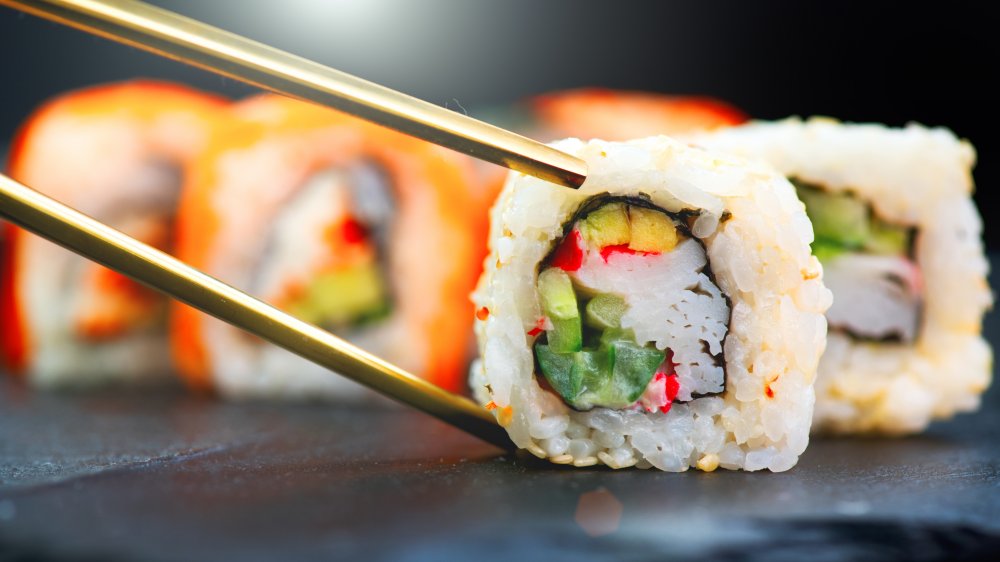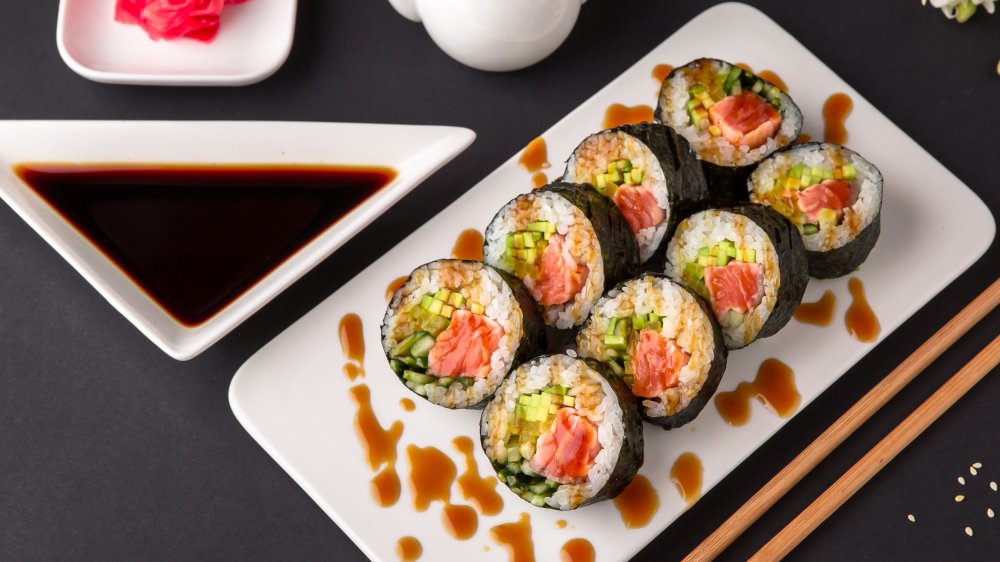Sushi Isn't As Healthy As You Think. Here's Why
Sushi might sound like an easy option for those who are trying to watch what they eat, but the popular dish can be surprisingly bad for you. While fish is very good for you — especially since it isn't cooked in oil, there are other components of sushi that you might easily overlook (via The Daily Meal). Those other ingredients that are used to make sushi can also make staying trim difficult if you overindulge.
One thing to keep in mind while eating sushi is that you should watch how often you dip each piece in soy sauce. While the condiment might be a non-negotiable for you, take it easy. Soy sauce is loaded with sodium, and eating too much salt can lead to poor health conditions. In fact, 1 tablespoon of soy sauce has 900 milligrams of sodium or around 40 percent of the suggested daily intake (via Real Simple). So even though it's low in calories, but it will definitely still have an impact.
Your rice intake from sushi can add up quickly
Another major component of sushi that makes it less healthy is the sticky white rice. You might not even realize just how much rice you are actually eating. There's between a half to one cup of rice per roll, or six to nine pieces, of sushi according to Nancy Farrell, a registered dietitian nutritionist (via Time). That packs around 500 calories says Isabel Maples, RDN, and spokesperson for the Academy of Nutrition and Dietetics.
There's also added vinegar and sugar which makes the rice stickier. So, sushi rice ends up having more calories than regular steamed rice.
If you're overeating sushi rolls, then it could really take a toll on your health in the long term. "Studies have shown a connection between high intake of refined carbs — like white rice — and increases in blood sugar and insulin, which can in turn increase risk of diabetes and heart disease," said Rebekah Blakely, RDN. So, be more mindful the next time you order sushi — consider ordering pieces sans rice and don't overdip the pieces into sauces. Or, view it as a treat rather than a healthy meal.

